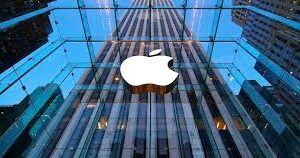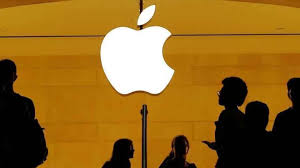Technology improves our lives in many ways. Phones have changed how we do everything – calling, eating, dating, watching movies and TV, travel. We look at the latest tech trends for 2019.
Technology. As the world looks forward to another year of doom and gloom – well, not so much look forward to as await in fear or aversion – technology is the one field that sends good news our way frequently. For every bad news that comes our way, the tech industry gives us news that gives us hope that things will be okay.
For every dictator who threatens nuclear war, the tech industry gives us a Pokemon Go; for every terrorist who promises to destroy our decadent civilization, Apple or Google release an OS update that makes us forget our existential fears. And then there are smart watches. Smartwatches make me think our decadent civilization does need some destruct-ing. I’m joking. Smart watches are cool. All the people who wear them are super cool. Swiss watches are so passe.
But that’s not all the tech that matters. Technology improves our lives in many ways. Phones have changed how we do everything – calling, eating, dating, watching movies and TV, travel. Since the first iPhone was released in 2007, technology has transformed everything. We even have drone cameras at many big fat Indian weddings in Delhi. All the furniture in our living rooms points toward entertainment devices. All our devices are internet ready. And China has all our data. But that’s a story for another time.
2018 – The big hits
2018 was a significant year for tech – SpaceX and its Falcon rocket; self-driven cars; Netflix; the iPhone XS; the death of Stephen Hawking, the Facebook data breaches; the downfall of cryptocurrency; Apple becoming a trillion-dollar company; China’s ZTE Corporation reached a $1.7 billion settlement with the US Commerce Department; the US Congress grilling Jack Dorsey and Sheryl Sandberg on fake news; GDPR; Net Neutrality; and the biggest tech story of all – Cambridge Analytica and Facebook’s collusion. See what I mean by technology becoming an integral part of your, and my, life? You know something about 50 percent of those stories because we even get our news on Inshorts.
But looking past the collusions, business deals and the general negative press that the tech industry received in 2018, we had some pretty impressive devices last year that people splashed out on – QLED or OLED TVs; the ridiculously good but less popular Samsung S9+; the $1200 iPhone XS; the Apple Watch 4, which, or some reason, sells like crazy; Amazon’s Alexa devices, which brought AI into our homes. Then there were the usual “flagship killers” by Chinese tech companies – the OnePlus 6, the Vivo and Huawei flagships – which have an ever-growing market share. If 2017 was the year of the notch, then 2018 was the year of too many notches – every mobile phone now has a notch at the top. Ok a genuine question here: If flagship-killers just copy the finer points of the iPhone, are they even really “flagship-killers”?
The big tech fail of 2018 is CRISPR. I know it has many fans, but as MIT Technology Review noted, “We all knew that gene-edited humans would one day be born, but nobody wanted it to happen so soon, and definitely not like this. In November, MIT Technology Review reported that He Jiankui, a scientist at the Southern University of Science and Technology in Shenzhen, China, had secretly launched the first attempt to create children with edited genes. He edited human embryos using the molecular tool CRISPR to remove a single gene. He claimed that twin girls—named Lula and Lala—had been born and that they would be immune to HIV because of how he’d altered their genomes.
The editing, though, didn’t go particularly well and wasn’t even necessary—there are cheaper and easier ways to prevent HIV infection. It now looks as though the twins were the unconsenting subjects of a reckless bid for a scientific first. He, who was hoping for a Nobel Prize, is instead under investigation in China.”
That was 2018 in a nutshell. As MIT Technology Review joked, 2018 can’t end soon enough. Well, tonight it does.
2019 – what does the future hold?
We can’t talk about 2019 without talking about the biggest breakthrough expected in the coming year – 5G. The next generation data tech was demonstrated during the WInter Olympics in South Korea.
Yes, many of us have terrible 4G on any given day (or even a consistent 3G signal – that sinking feeling when we see the “3G” symbol on our phone is something humanity at large can bond on).
Even so, 2019 will be the year the first 5G mobile services are launched across the world. News reports have stated that regions like Europe, China, South Korea, Japan and Australia are in the late stages of 5G deployment. Maybe not in India, because Qualcomm skipped India in its 2019 roadmap for 5G when it announced the launch of its next-generation chipset Snapdragon 855 that supports 5G.
Spectrum auctions for 5G are expected to take place in the second half of 2019 or early 2020. But that needn’t bother us in India too much. While nearly every Android device will support 5G in 2019, iPhones will not. Apple hasn’t said a word about 5G, so it is likely we will most probably see 5G iPhones only in 2020. A report by Bloomberg claimed Apple will reportedly stick to LTE speeds in the 2019 iPhones and wait till 2020 to embrace 5G. And we know, when it comes down to it, the iPhone is the flagship mobile.
Word is, instead of a ‘5G’ symbol on existing smartphones, the technology will probably first be rolled out as a wireless broadband service.
For example, Vodafone is testing rural 5G mobile broadband in some smaller markets like Ireland. It is setting up services in countries with what it calls “5G capable equipment”. What that means is wireless connections from the equipment will be able to get high-speed broadband of up to 500 Mb. That’s many times faster than the 10-15 mbps we get on the best 4G networks in India!
Ericsson also announced a 5G Wi-Fi router that can translate a 5G signal into high-speed mobile broadband for existing laptops, phones and tablets. The device is expected to be launched next year. While we might see one or two 5G smartphones announced next year, don’t expect fully compatible handsets to be announced until 2020.
So even as it looks like India might miss the 5G bus, the next generation data standard is set to take the world by storm in 2019.
AI and autonomous tech
The next big trend in tech in 2019 is, according to Forbes, “autonomous things.” Well, Forbes says Gartner says so. Investments in autonomous things – especially vehicles of the self-driven variety – have been rising for years now.
There’s a bona fide race to the autonomy of all shapes and sizes among some of the largest companies in the world – and some of the (very well-funded) smallest! Autonomous things will be enabled by a variety of technologies, including especially IoT and AI. AI is short for Artificial Intelligence, the kind of intelligence that is pre-programmed into machines which they then use to adapt to real-life situations. Or something like that. For instance, no one knows what percentage of air, land and sea vehicles will be partially or fully autonomous in five years. But we know connectivity will be a big part of all things autonomous.
In fact, companies are betting big on self-driven cars. DigitalTrends.com said in a report, “It’ll be hard to miss all of the concept cars at the show, which will capture everyone’s attention with splashy visions of what the cockpit of the future feels like once robots become our chauffeurs – and our cars become more movie theater than driver’s seat. In fact, Audi’s car of tomorrow is exactly that: A full-fledged entertainment space. These are useful to spur the imagination and get a public still somewhat fearful of self-driving cars to see the bright side, a 25th hour in your day that you just reclaimed from that wasted commute home.”
On the flip side, as the report also noted, “self-driving cars are boring to ride in (unless they crash, of course.)”
Don’t believe the AI hype? Sample this. According to USA Today, a global online survey conducted by Ericsson suggests that by automating more of our day-to-day decisions, we are in danger of becoming mentally lazy.
Fifty-seven percent of respondents want a smartphone to know when they’re getting ill before they themselves detect any symptoms. Another 43 percent of people would like a virtual assistant to decide when they should visit a doctor, dentist or hairdresser. Just over a third believe critical thinking will disappear because of the overuse of virtual assistants. And 31 percent believe that we may have to go to “mind gyms” to practice thinking. Yep, mind gyms. The end is nigh, my friends.
The next big thing in phones – foldable screens
Phone displays can be made flexible – Samsung had promised a foldable phone in 2018 and proved this with a phone that unfolded into a tablet. They called it the Infinity Flex display. The phone with foldable screens is expected to release in 2019.
And it’s a pretty nifty piece of tech – it can be small when you only need to answer a call or put it in a pocket but expand when you want to watch a video or view content in a group. Other possible uses are displays that can be rolled like TVs that can hideaway in countertops when not in use.
With CES 2019 just around the corner, we can expect some far out demonstrations of display technology – a giant TV screen that rolls-up like the posters or an 8K set with so many pixels you’ll be able to count the number of layers that make up an actor’s make-up. Forgive that tragic redundancy.
Phone display tech is expected to see major changes in 2019 – tech publications have been salivating over rumored announcements about smartphones that either roll up or simply fold in half to better fit our pockets.
Those flip phones which were a regular fixture in early 2000s TV series will be back, only they’ll feature screens all over. Samsung, LG, and Huawei have been teasing us with leaks but haven’t confirmed anything. It is hard to say with absolute certainty that we’ll see one, and this podcast could age rather badly. But some tech journalists have gone out on a limb and claimed we absolutely will.
Jeremy Kaplan wrote in DigitalTrends that “Samsung will lead the innovation charge.” As The Guardian noted, “Like something out of science fiction, folding phones will become a reality, with one already unveiled and Samsung’s effort due to be launched at some point in 2019.”
It also has a word of caution: “Whether or not the reality lives up to the fantasy, folding phones are likely to remain niche for years…The folding phone’s inevitable high cost and its trade-offs in usability will result in limited shipments. Problems are likely to include poor readability in sunlight, a bulky design to protect the screen’s fold and the need for an external screen.”
If you really must have bleeding-edge tech, it looks like you will be able to buy one in some form as the never-ending quest for larger and larger displays continues.
Ben Wood, chief of research at CCS Insight, said, “Don’t be surprised to see the £2,000 phone in 2019 – the advent of 5G, premium materials, perhaps foldable devices and more will see the emergence of a new ultra-premium segment. Apple has let the way on smartphone inflation and we expect manufacturers to keep pushing the boundaries – particularly as people hold on to their phones for longer.”
Biometrics
Yes, biometrics. Another futuristic technology, right out of the movies, is going to be a big part of our lives. We don’t have to place our chin near a retina-scanning device nor will anyone gouge out your eyes to unlock any secret safes or doors. Alright, I admit, I enjoyed the movie Minority Report a bit too much.
Truth is, we have been using fingerprint scanning and face unlock on phones and tablets for a long time. Some are more secure than others. Apple showed us the first secure face unlock system in iPhone X. They were so confident of the Face ID system that they did away with the old fingerprint scanner, and that home button, altogether. In 2019, experts predict better versions of this face scanning.
We will also start seeing biometric scanners in other products – like cars. So the start/stop button in your car might soon read fingerprints, foregoing the need for a key. A fingerprint scanner on the door will let you in, and the vehicle’s seat settings, steering wheel and climate control can adjust according to the user. There are reports that Hyundai could start including this tech in some of their cars next year, starting with the 2019 Santa Fe.
8k TVs
The new tech you’re most likely to hear a lot about could well be an 8k TV . That’s right. 4K TVs will be old news in 2019. Next year, TV makers will go big with 8K TVs, which have four times as many pixels as 4K televisions – they can display images in far more detail.
Samsung already sells an 8K TV, but at a monstrous $15,000 or 10 lakh rupees. Expectedly, it’s not flying off the shelves just yet. Industry analysts expect LG and Sony to expand the market by launching their first commercial 8K sets at the Consumer Electronics Show (CES) a week from now. Also, the 2020 Tokyo Olympics will also be broadcast in 8K. Well, if nothing, 4k TVs will certainly get cheaper.
Those are the big trends expected in tech in 2019, which seems a checkpoint to bigger milestones in 2020, when all the big changes in tech are expected to kick in fully. Start saving up, I guess?
Except for those notches. They are not going anywhere, unfortunately.




























 WhatsApp us
WhatsApp us
Pingback: https://sportzdrowie.com.pl/forum/zele-masci-plastry-f15/paski-crest-pl-opinie-t408.html
Pingback: sex porno indir
Pingback: 메이저카지노
Pingback: calvery-county-exterminators.info
Pingback: bitcoin exchange
Pingback: top10best
Pingback: Apartment Corp CEO Menowitz
Pingback: math homework answers
Pingback: fun88.viet
Pingback: English bulldog puppies for sale near me in MN MD CT NJ AZ AK LA WV ND IW NC NB WA NV MI
Pingback: Cheap sweets
Pingback: Vape pens for Sale
Pingback: thenaturalpenguin
Pingback: bitcoin era online
Pingback: tag heuer replica watches uk
Pingback: gambling
Pingback: Canon 2417B002 manuals
Pingback: Lexmark C772 manuals
Pingback: List of DevOps Tools
Pingback: https://wildyonder.org/how-to-write-research-papers-in-college/
Pingback: 3d printing cad software
Pingback: 안전공원
Pingback: cc shop
Pingback: Digital Transformation Company
Pingback: mortgage rates
Pingback: track with pin
Pingback: Bilad Alrafidain University |Bilad |Alrafidain |college students
Pingback: Buy Marijuana wholesale
Pingback: köpa melanotan 2 sverige
Pingback: sbo
Pingback: สินเชื่อโฉนดที่ดิน
Pingback: slot gacor via pulsa
Pingback: tu peux vérifier
Pingback: superslot
Pingback: ปั้มไลค์เฟส